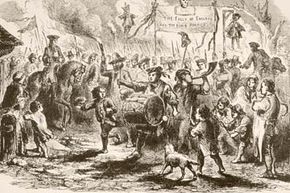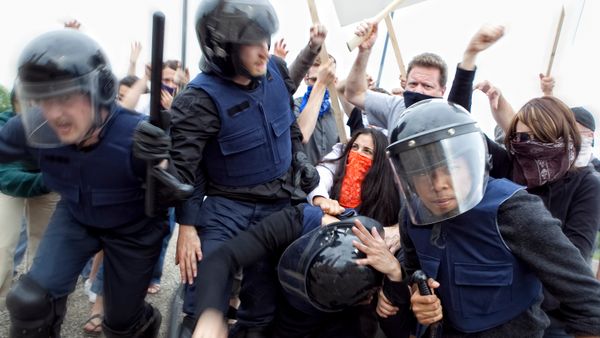Martin Luther King Jr. once said "A riot is the language of the unheard." Indeed, when we see a riot on the news, we are likely viewing a group of people who feel frustrated and oppressed, who feel that the only way to make the people in charge pay attention is to leave a physical mark on the community. How can you ignore a group of people overturning cars, looting stores and fighting police officers? These actions are probably intended to force authorities to consider the decisions they've made or the situations they've created that have left the rioters so angry and destructive.
However, in another speech, King made this observation: "The limitation of riots, moral questions aside, is that they cannot win and their participants know it. Hence, rioting is not revolutionary but reactionary because it invites defeat. It involves an emotional catharsis, but it must be followed by a sense of futility." Squeaky wheels may get the grease, but if you drive a car with a wheel that constantly drives off the road in an effort to destroy you, you'll eventually get rid of the wheel altogether. That's why King preferred means of nonviolence to push for social change. Protests, demonstrations and peaceful assemblies are protected by the U.S. Constitution, but when three or more people get together to destroy property or hurt people, then they're in legal trouble.
Advertisement
Riot is a legal term that involves a disturbance of the peace; it's distinguished from lawful assemblies by the violence that occurs. As King said, they can be cathartic events for people who feel that they need to make a point to authorities who aren't hearing them. However, more often than not, they're unsuccessful, as King also pointed out. So why do riots occur? How do they start? Who participates in them? And is there any good way to end or prevent them?



